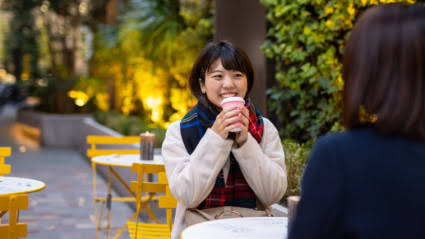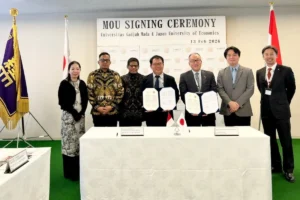Activists fight Tokyo gov’t over historic venues

Tokyo, The Gulf Observer: Activists seeking to preserve two historic sports venues and an iconic tree-lined avenue are locked in a battle with the Tokyo government over the redevelopment of one of the city’s greenest neighborhoods.
Tokyo is now in the final stages of initiating a plan to demolish and replace Jingu Stadium, the world’s fourth-oldest baseball ground still used by a top-flight pro team, and Prince Chichibu Memorial Rugby Ground, Tokyo’s 75-year-old main rugby venue and the home of the Japan Rugby Football Union.
According to management consultant Rochelle Kopp, three different petition drives to halt the project have amassed nearly 150,000 signatures. Kopp originally got involved in the campaign because the plan would involve cutting down around 1,000 trees — a figure Tokyo has since reduced to around 500.
Author Robert Whiting, who has written extensively about Japanese baseball, as well as some less-savory aspects of Japanese society, collected 13,000 signatures in just a few days.
Jingu Stadium, which will celebrate its 100th anniversary if it survives until 2026, is the spiritual home of Tokyo’s vibrant college baseball leagues, hosted a pivotal 1934 tour by MLB Hall of Famers Babe Ruth and Lou Gehrig, and is now home to Japanese pro baseball’s Yakult Swallows.
Both Kopp and Whiting said the world’s three older active pro baseball stadiums, Chicago’s Wrigley Field, Boston’s Fenway Park and Nishinomiya’s Koshien Stadium, have retained their history by being successfully remodeled and upgraded, something not in Tokyo’s plan.
“The Tokyo government describes the facilities with the word rokyuka, meaning decrepit,” Kopp told Kyodo News, referring to a government fact sheet detailing the project.
Kazuko Yachi, a section chief in Tokyo’s bureau of urban development, said the unfortunate choice of words came out of public discussions about the project held in 2018.
“The plan has long been in the works as part of the 2013 vision to make Tokyo more accessible, less congested, safer and up to date,” she said.
The collection of “public comments” from August to September 2018 were done with a minimum of publicity, however, and news of the development came as a shock to those most affected by the plans.
“People living nearby tell me they didn’t hear anything about it until the public meeting in December 2021, which they found out about through a teeny tiny notice in a ward publication that normally nobody ever reads,” Kopp said.
Tokyo Gov Yuriko Koike said the four rows of 100-year-old trees that make up the landmark Jingu Gaien Ginkgo Avenue will be preserved. Yachi said experts had examined the plan and assured the trees would be safe, while the heights of buildings had been constrained to provide ample sunlight to the precious legacy.
However, University of Tokyo professor emeritus Mikiko Ishikawa, who has studied the plan and inspected over 140 individual trees, rejects the government’s contention. She said building the baseball stadium within a few meters of the living landmarks will damage their root systems and cause irreparable harm.
In addition to replacing its “decrepit” stadiums, Tokyo’s plan aims to create a base for uplifting sports and activities, and for interaction with diverse greenery that makes the most of its historic character and becomes a “bustling and attractive hub.”


